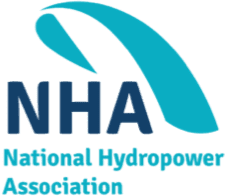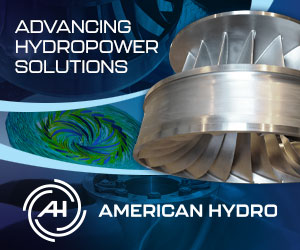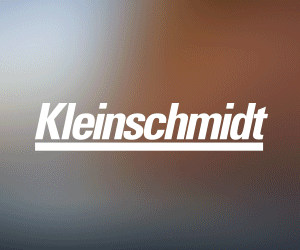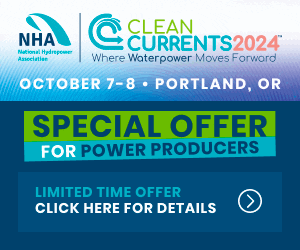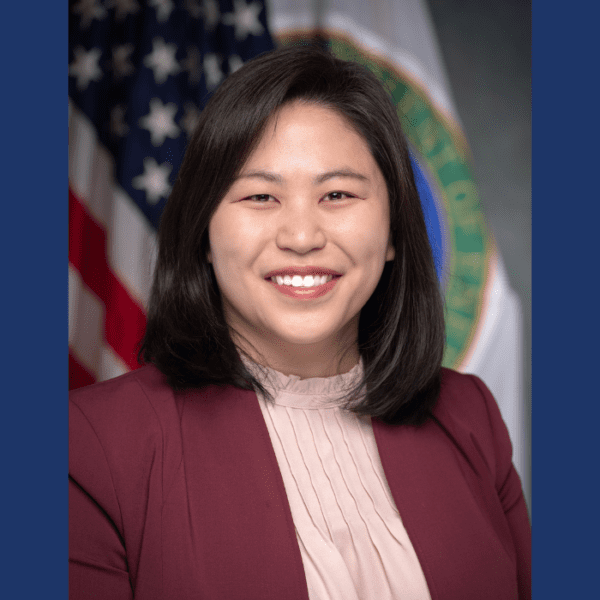For more than 150 students at 31 universities throughout the U.S. (and one international school from Portugal), waterpower is “top of mind.”
For the past year, undergraduate and graduate students have been participated in the 2023 U.S. Department of Energy’s Water Power Technologies Office (WPTO) Hydropower Collegiate Competition (HCC) and the Marine Energy Collegiate Competition (MECC) to offer unique solutions to modern clean energy challenges
This week, students and faculty advisors are in Washington, D.C. to join the combined HCC-MECC final event, culminating in three days of presentations on the hydropower case studies, marine energy technical reports, and the hydropower and marine energy community engagement activities. Winners will be unveiled at the Award Ceremony as part of the Plenary Session on Tuesday, May 9, at the National Hydropower Association’s Waterpower Week in Washington national policy conference.
The competitions help students prepare for jobs in hydropower, marine energy, and related industries to advance marine energy and hydropower technologies.
DIVE INTO COMPETITION DETAILS
HCC and MECC are administered by the DOE National Renewable Energy Laboratory (NREL) on behalf of WPTO. The HCC is held in partnership with Hydropower Foundation.
Ten teams representing schools in eight states around the nation are participating in the inaugural HCC:
- Columbia University
- Cornell University
- Endicott College
- Northern Arizona University
- Pennsylvania State University
- Texas Tech University
- University of Houston
- University of Virginia
- Virginia Polytechnic Institute and State University, partnering with University of Michigan
- Yale University
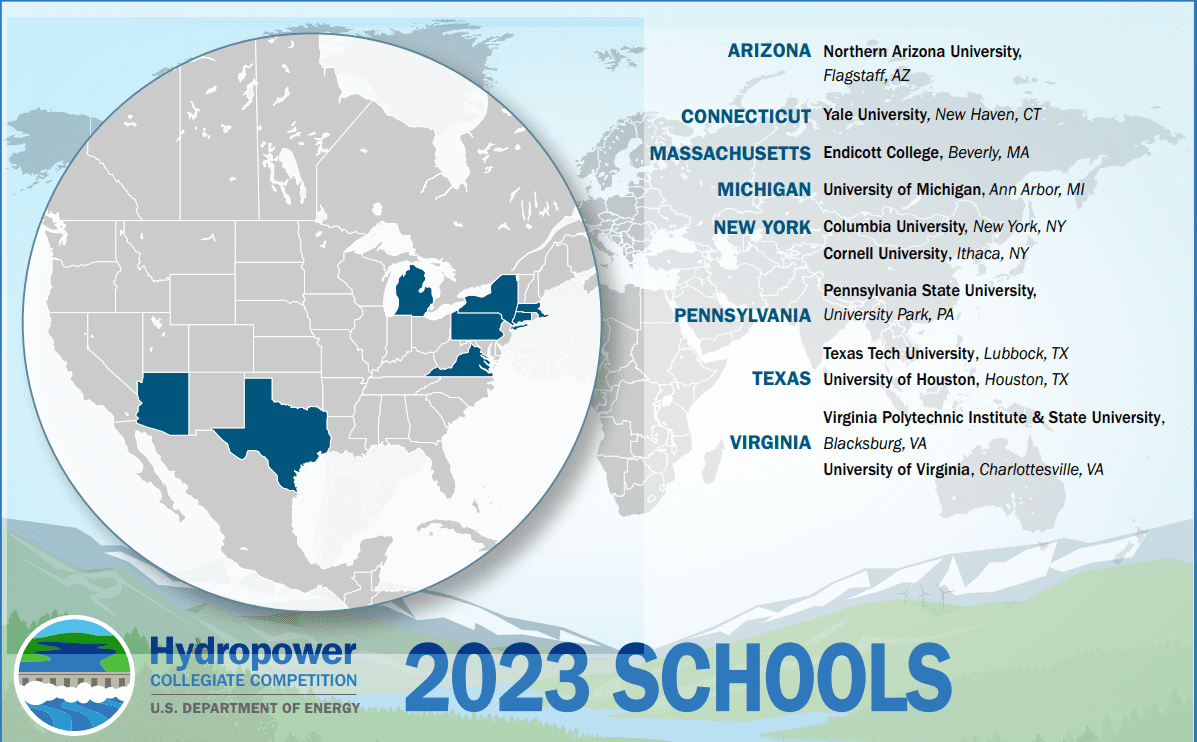
In its fourth year, MECC engaged 19 teams representing 22 different institutions, 11 states, and two countries (the United States, of course, and Portugal!):
- California Polytechnic State University
- California State University Fresno, partnering with University of California Merced
- California State University San Marcos
- Cornell University
- Manhattan College
- Michigan Technological University
- North Carolina Agricultural & Technical State University, partnering with University of North Carolina Wilmington
- Oakland University
- Oregon State University
- Purdue University
- Stevens Institute of Technology
- Texas A&M University
- University of Houston
- University of Massachusetts Dartmouth
- University of Michigan, partnering with Virginia Polytechnic Institute and State UniversityUniversity of New Hampshire
- Virginia Polytechnic Institute and State University, partnering with Instituto Superior Tecnico and University of Michigan
- Webb Institute
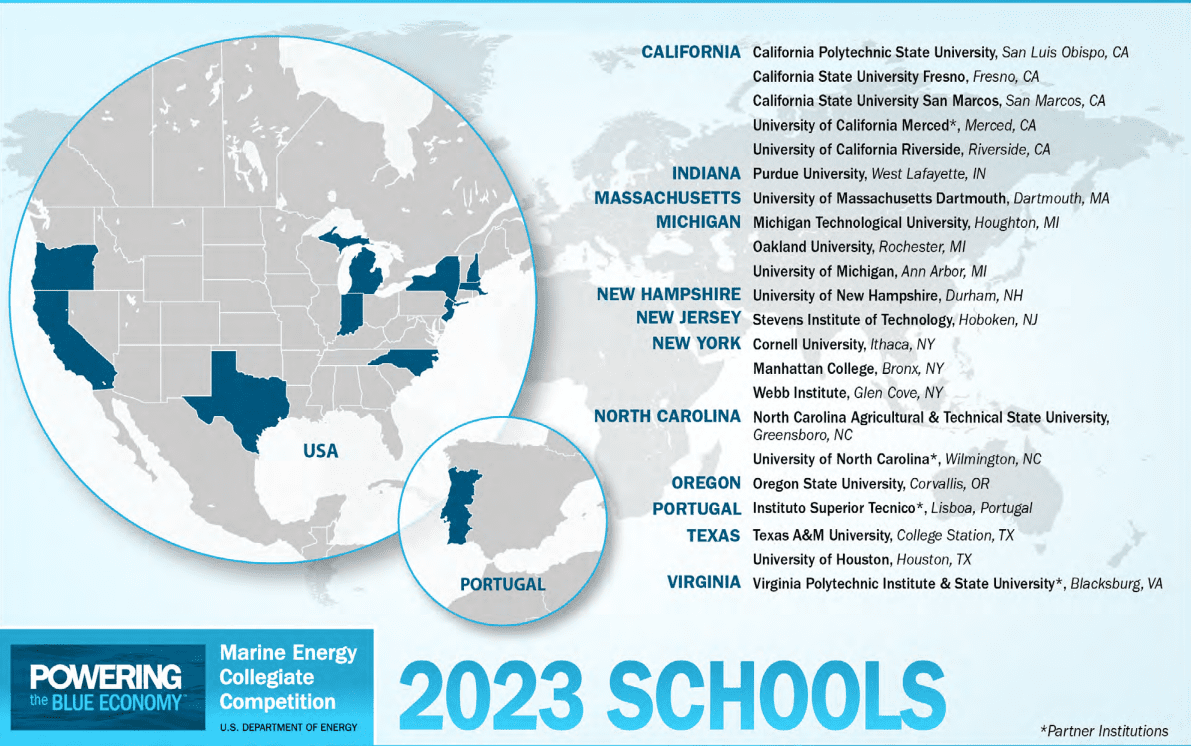
The two competitions have so far engaged a combined total of 14 minority-serving institutions, including Asian American and Native American Pacific Islander-serving institutions, historically Black colleges and universities, Hispanic-serving institutions, and tribal colleges and universities, as well as 13 international schools.
Interested in engaging with and learning more about the next-generation clean energy workforce? Looking to hire some soon-to-be graduates? View the competitors’ resumes.
Competition Final Events Presentation Details
The 2023 HCC consists of two contests:
The Case Study Contest, where teams analyzed a case study that focuses on how hydropower fits into a future power grid supported by 100% renewable energy and the associated opportunities and challenges of incorporating the hydropower fleet into this clean energy vision.
Connections Creation Contest, where teams explored multiple sectors of the hydropower industry and learned about career opportunities. Each team also organized and ran at least one educational event with middle school, high school, or college students and/or the general public. HCC teams will present their case studies today, Monday, May 8. You can also watch teams present on their community outreach efforts today and tomorrow, Tuesday, May 9.
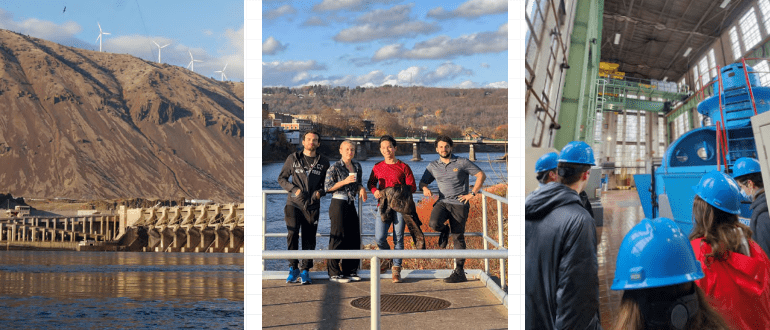
The 2023 MECC included three contests:
The Business Plan and Technical Design Contests, where teams identify a promising blue economy market, determine the best marine energy application to address within that market, and design a marine energy-powered device to serve consumers within the team’s chosen market.
The optional Build and Test Challenge, where teams build and test a scaled prototype of their concept
The Community Connections Contest, where teams conduct outreach activities to educate their communities about marine energy. The students will pitch their technical designs to a panel of judges on Monday, May 8 and Tuesday, May 9.Like the HCC, MECC teams will present their community outreach efforts over the next two days,.
Please view the agenda and event program for more information about the 2023 HCC-MECC Final Event or visit the Event App.
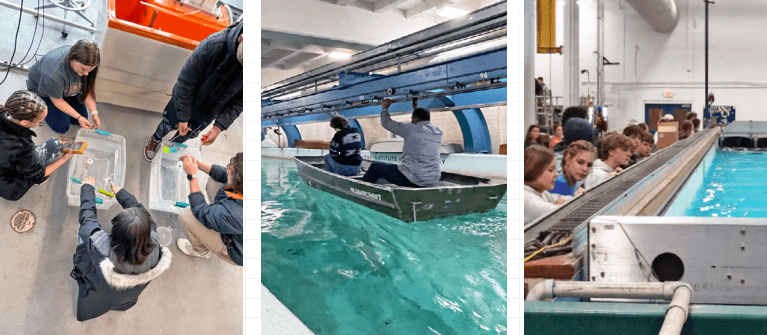
Why Competitions Matter
According to the updated NREL hydropower workforce report, U.S. Hydropower Workforce: Challenges & Opportunities, college-aged students have a growing interest in renewable energy careers, but are largely unaware of hydropower job opportunities and the projected growth of the industry.
HCC and MECC offer valuable, real-world experience and professional connections, paving the way for students to start their clean energy careers.
These competitions aim to inspire and help build the hydropower and marine workforce, which are important resources needed to achieve the White House’s goals of a carbon-free power sector by 2035 and a net-zero-emissions economy by 2050.
Stay tuned for the 2023 HCC and MECC winners announcement. DOE will also announce the teams selected to compete in the 2024 competitions.

